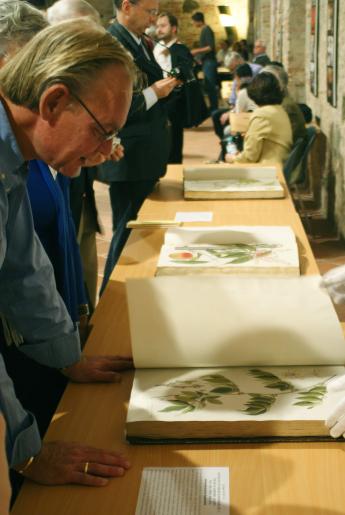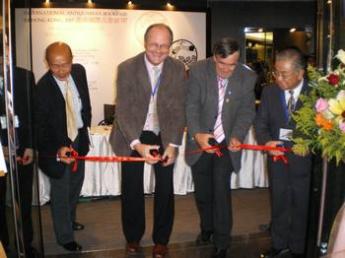History
Perspectives

Breslauer Foundation
In 2008, the ILAB Prize for Bibliography changed its name into ILAB Breslauer Prize for Bibliography to honour a very generous gift granted by the Breslauer Foundation. The Foundation was set up by Dr. Bernard H. Breslauer (1918-2004), an ILAB dealer who had a life-long passion for bibliography. Years of work by the ILAB Committee, and especially by Bob Fleck, resulted into the best of all solutions. The contact with Felix de Marez Oyens, consultant and President of the Breslauer Foundation, provided the final key to the funding problem: a gift of $108,000 allows this special prize for Bibliography to exist in perpetuity.
China and Russia
In the same year, a Pan-Asian Association was formed with eye towards joining ILAB. Paul Feain was appointed as interim president. He and Mitsuo Nitta opened the doors to the Asian market. Eric Waschke and Norbert Donhofer deepened the relations to the Russian rare book dealers on several visits to Moscow and St. Petersburg. These contacts laid the ground for another milestone in ILAB’s history:

In October 2009, the Russian Guild of Antiquarian Booksellers was unanimously elected as new member of the League during the Presidents’ Meeting in Vienna.
In 1948 the International League was founded to improve friendship between the cultures. Welcoming the Russian booksellers 60 years and enormous political revolutions later was therefore a really important step in the history of the League, and for the rare book trade in general. It was, as Adrian Harrington said, when he shook hands with the Russian delegation:
“A truly historic moment”
Five founding nations in 1947, 10 national associations at the first ILAB Congress in Copenhagen in 1948 – what started with the aim to promote friendship, peace between cultures and open markets for rare booksellers has become a global organization. Today the ILAB faces new problems in an ever changing world, but their aims are still the same. It was Bob Fleck, ILAB President of Honour since 2007, who wrote in 2006:
“ILAB started life as a Federation of countries that had very little need to take any centralized action to survive. Times have now changed. Bookselling has now changed. The new electronic world has had a major impact in our lives for both good and bad. There are many who are saddened by this change as they see their old ways of doing business becoming obsolete. They see an entire cultural shift away from the books that make up the foundation of our business and do not have the will or energy to change with these new times.
"They are the pessimists. I am the optimist:
I see ILAB in the perfect position to launch itself successfully in this new world. We have built a much better foundation for ourselves than any of the other dealer organizations selling books, art or antiques. ...For those of you who think that the cultural shift away from books will end our profession, I see things differently. There will always be a market for the books that we sell as they are not just texts, they are artifacts to be touched, smelled and handled with love. In my own business I see a large number of people who have revolted against the TV and computer screen and are returning to the handcrafts of printing, binding, papermaking, illustration. It isn’t only the text that is important; it is the text as presented to the reader with all the subtleties of an artifact.
